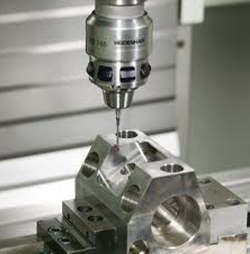Precision fabrication and welding is one of the most used manufacturing processes. Aside from the fabrication of residential and commercial structures, handrails, awnings, beams or posts among others, precision welding is also a huge part of metal work, regardless of metal type.
The term precision fabrication and welding is loosely used because most welding processes require utmost precision and technical skill. However, precision welding often talks about laser welding, micro welding, TIG welding and MIG welding.
Not all welding equipment is used by a particular company or freelance welder. The equipment needed depends largely on the type of jobs you make. For instance, if the company is involved in fabrication, new part assembly, reconstruction of machines, building of dies and molds, TIG and MIG welding machines are a must for daily operations. However, if the company specializes in smaller items, laser welding machines and micro welding machines are equipment more appropriate for precision jobs.
Regardless of which type of welding equipment to buy, make sure to read up on international standards to ensure they meet the specifications (thermal power, cutting range, etc.) you’ll need to work efficiently.
Back to Top
The term precision fabrication and welding is loosely used because most welding processes require utmost precision and technical skill. However, precision welding often talks about laser welding, micro welding, TIG welding and MIG welding.
Processes where Precision Welding is Used
- TIG Welding – Tungsten inert gas welding is a process that involves blending reactive metals like aluminum and steel together. With this kind of precision fabrication and welding, metals are joined using different joints such as butt joint (with filler rod), lap joint (by overlapping two metals), t-joint (uses filler rod to form a T-shaped metal) or a corner joint (to form metals with corners).
- MIG Welding – Metal inert gas welding is often used in the automotive industry. Although MIG welders allow automation and a faster approach to welding, its downsides are more troublesome due to the amount of smoke on TIG systems and the high risk of errors.
- Micro welding – Uses the principles of TIG welding, but are applied on small applications, laser welding is a type of precision fabrication and welding done under a microscope to create tools for the medical industry. Tool and die makers also use laser welding regularly.
- Laser welding –One of the most used modern processes today, laser welding involves the use of laser or amplified light in welding metals.
Precision Fabrication and Welding Equipment
Fabrication and welding equipment such as the welding shields, welding transformers, plasma arc cutters, flux cored welders, stick welders, engine-driven welders, wire feeders, automated or manual welding systems, welding guns, induction heating systems, resistance spot welders and other equipment are available either as a stand-alone or multi-process welding machines. As such, most freelance welders use traditional welding machines or multi-process machine to start their business and collect other needed machines from there.Not all welding equipment is used by a particular company or freelance welder. The equipment needed depends largely on the type of jobs you make. For instance, if the company is involved in fabrication, new part assembly, reconstruction of machines, building of dies and molds, TIG and MIG welding machines are a must for daily operations. However, if the company specializes in smaller items, laser welding machines and micro welding machines are equipment more appropriate for precision jobs.
Equipment Standards and Other Buying Considerations
Brands (Hobart, Esab, Miller, Lincoln, etc.) are important when it comes to buying fabrication and welding equipment, particular if you are starting your own welding workshop. Once you’ve decided on the brand, you need to figure out if a multi-process machine is enough, or you’d prefer to buy each machine that handles a specific process. Of course, buying equipment for a factory is a different story.Regardless of which type of welding equipment to buy, make sure to read up on international standards to ensure they meet the specifications (thermal power, cutting range, etc.) you’ll need to work efficiently.
Back to Top
Fabrication and Welding

Fabrication and Welding Resources
- Home
- Custom Fabrication and Welding
- Fabrication and Welding Apprenticeships
- Fabrication and Welding Books
- Fabrication and Welding Companies
- Fabrication and Welding Courses
- Fabrication and Welding Engineering
- Fabrication and Welding Jobs
- Fabrication and Welding Schools
- Metal Fabrication and Welding
- Plastic Fabrication and Welding
- Precision Fabrication and Welding
- Stainless Steel Fabrication and Welding
- What is Welding and Fabrication
Sponsored Links
